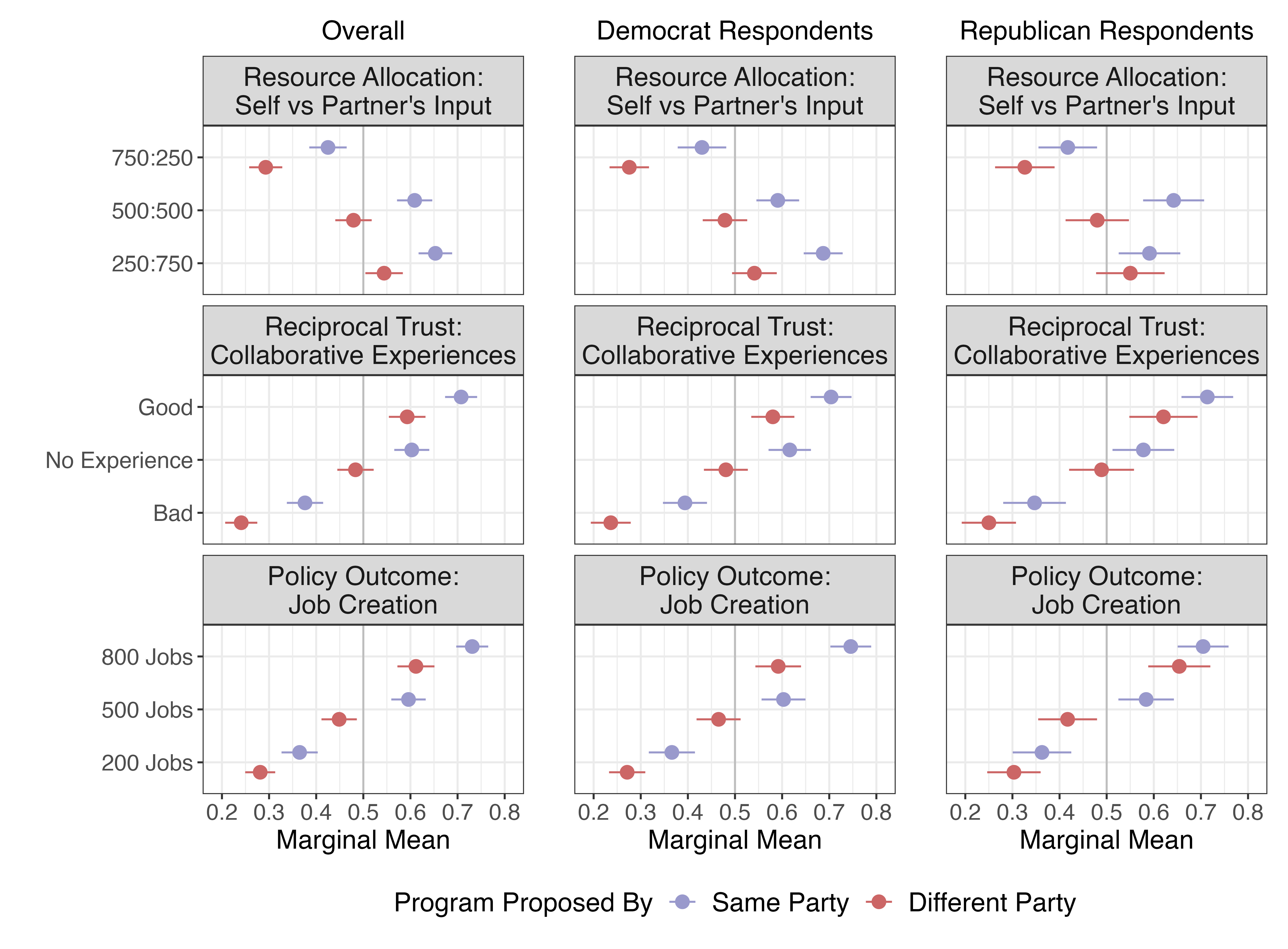Publication Page Online Appendix Data & Code
Abstract
Partisanship plays a central role in the policy process, but its impact on the adoption of collaborative strategy by policymakers remains unknown. To fill this gap, I conducted a conjoint experiment involving municipal officials across the United States, examining the effect of co-partisanship on policy collaboration and its moderating impact on collaborative attributes such as resource allocation, reciprocal trust, and policy outcome. The findings reveal that a collaborating partner’s co-partisanship status increases the likelihood of local policymakers adopting a program by 12.75 percentage points. Moreover, co-partisan program proposals generally enhance the favorability of collaborative attributes. Finally, the consistency of the co-partisanship effect across ideologies and various subgroups demonstrates that party identity is rooted in in-group loyalty and fundamentally affects the collaborative process.
Figure 3: Conditional Effects of Partisanship on Collaborative Attributes in Program Adoption
